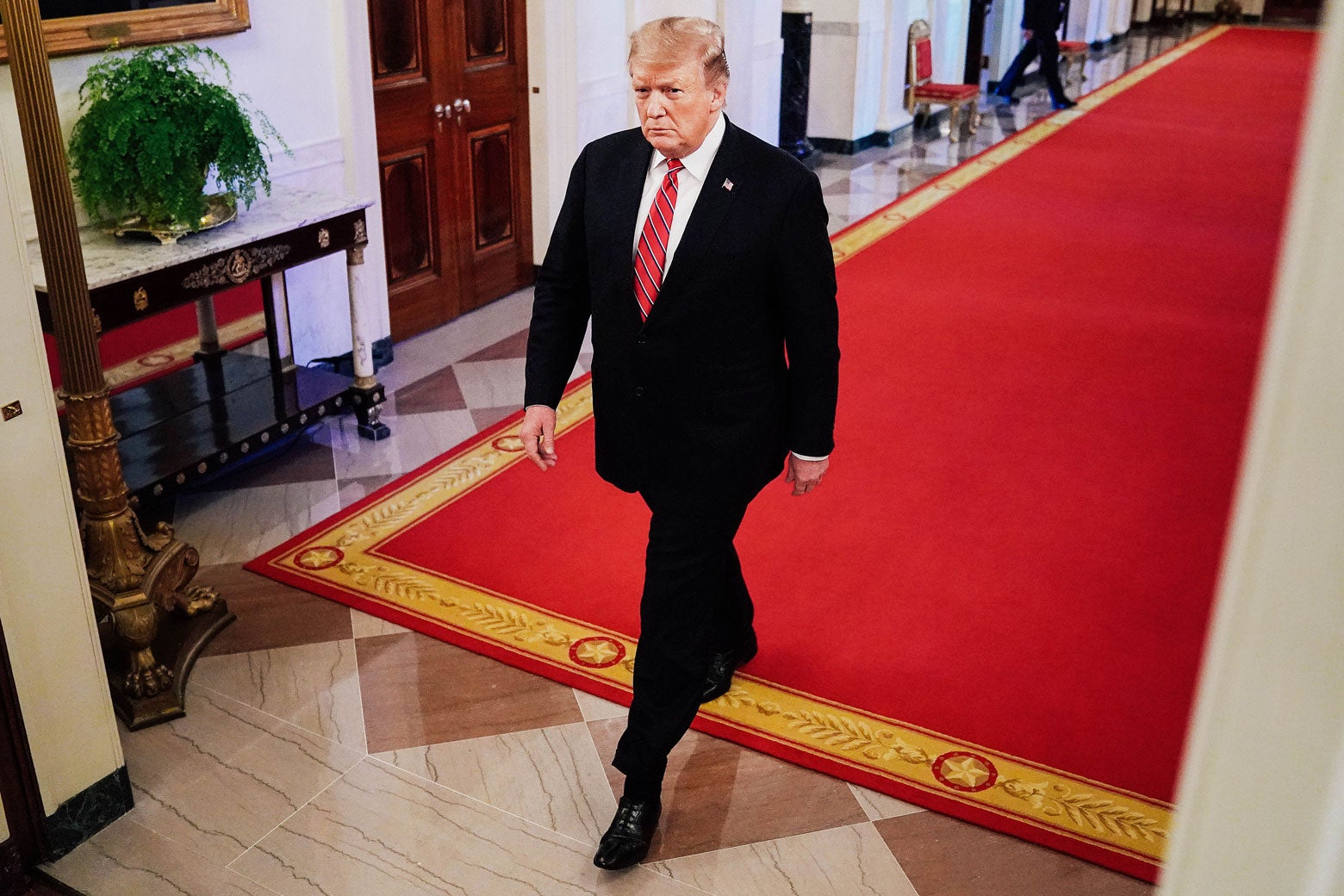President Donald Trump takes great pride in his new trade agreement with Canada and Mexico, the United States-Mexico-Canada Agreement. It would be nice if he took a glance at its terms before carrying through on last week’s threats to “close the border.” The agreement expressly states that the United States does not have unilateral authority to impose a sweeping ban on cross-border trade.
Article 34.1 deals with problems arising during the transition period from the North American Free Trade Agreement to the new regime. It begins by “recogniz[ing] the importance of a smooth transition from NAFTA 1994 to this Agreement.” It then emphasizes this point by providing that NAFTA’s enforcement provisions “will continue to apply … but only to goods for which preferential tariff treatment was claimed” under the earlier treaty.
The president’s tweets and casual remarks fail to reveal any awareness of the lawless character of his threats. Nor has there been any public effort to make a legal case for his actions. There is currently no indication that either the Justice Department’s Office of Legal Counsel or the White House counsel’s office is seriously considering the matter.
If Trump nevertheless makes good on his threat, he will not only be disrupting the lives of millions on both sides of the border. He will be creating a disastrous precedent that other leaders can use to legitimate their own country’s breaches with the rule-of-law system constructed since World War II.
The president is not only threatening to destroy the complex web of trade agreements that has contributed so much to world prosperity over the last 75 years. He is also defying America’s statutory grants of asylum to victims of political oppression in their homelands. Rather than some arbitrary encumbrance on presidential power, these laws represent postwar America’s response to its tragic failure to provide asylum to Jews and others victimized by the Nazis and Communists during the 1930s.
If the president follows through on his threat, he will immediately be confronted by a host of lawsuits challenging its legality. Undoubtedly, some federal district courts will issue preliminary injunctions, as in the case of Trump’s early travel bans. But it is hard to predict whether the courts of appeal and the Supreme Court, which has leaned in favor of broad executive authority, will allow such extraordinary injunctions to continue while they are considering the merits of the president’s legal arguments—whatever they may turn out to be.
There is, however, one straightforward way to put an end to Trump’s abuse of power. A bipartisan group of Republicans and Democrats should demand that the administration immediately submit a bill to Congress that triggers the process through which the new trade agreement will come into effect. Once Trump acts to vindicate his own agreement, the ball is in House Speaker Nancy Pelosi’s court. Then after the House approves, Senate Majority Leader Mitch McConnell would not be able bottle it up in committee. Instead, the special procedures governing trade agreements provide that the Senate must vote on the agreement within 30 days of the passage of the House measure.*
There would then be no need for the Senate to spend 30 days before its floor vote. The lengthy period of NAFTA renegotiation by both the Obama and Trump administrations has already generated broad bipartisan support for the agreement. It is perfectly possible for Congress to preempt legal and economic chaos at the border if Trump is willing to make good on his commitment to submit the agreement for rapid enactment into law.
Even by his own standards, Trump’s threats represent a mind-bending violation of the rule of law. If he carries them through, he has only himself to blame for its terrible short- and long-term consequences.
Correction: This article originally misstated the amount of time before the Senate must vote on a trade agreement following a House vote. It is 30 days, not 45.
